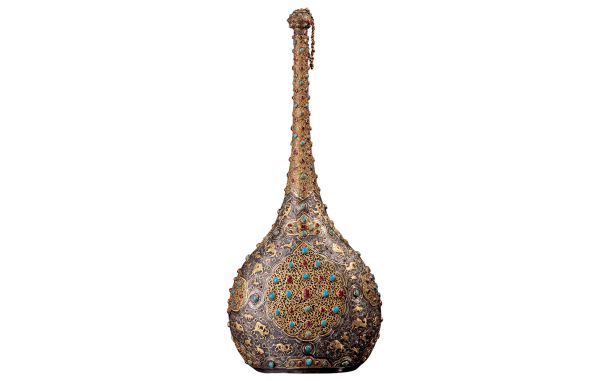Commemorating Fethullah Gülen
In This Article
-
Fethullah Gülen placed a strong emphasis on interfaith dialogue, a significant part of the precious heritage he has left behind.
-
In 1966, Fethullah Gülen began his service at the Kestanepazarı Mosque in Izmir, where he developed the foundational idea of supporting aspiring students through accommodations that fostered a life of prayer and communal Qur’anic study—safe from persecution.
Edirne is a city with two particularly impressive mosques, the Selimiye Mosque and the Üç Şerefeli Mosque. It has always been an intriguing thought for me that, in 1958, Fethullah Gülen travelled from Erzurum, the urban center of the region where he grew up and was educated, across Turkey, and only a few weeks later, assumed a position at the Üç Şerefeli Mosque after passing the official imam examination at the state directorate of religious affairs in Ankara. I am sure that at some stage in the future a small marble tablet will be put on a wall of the courtyard of the mosque in memory of his service there.
When Fethullah Gülen’s statement, “Build schools, not mosques!” is quoted within the Hizmet movement, I sometimes wonder if part of his reasoning stemmed from his familiarity with many extraordinarily beautiful mosques—spaces that, if duly appreciated, offer believers an aesthetic experience capable of lasting a lifetime, whether through an actual visit or even through images.
In 1966, Fethullah Gülen began his service at the Kestanepazarı Mosque in Izmir, where he developed the foundational idea of supporting aspiring students through accommodations that fostered a life of prayer and communal Qur’anic study—safe from persecution. This sohbet style of religious conversation creates, on one hand, an atmosphere of personal piety, while, on the other, it encourages religious practice for the benefit of broader society. The origins of Hizmet as an educational movement and as an initiative promoting Islam as a civil religion can, it seems, be traced back to this time. The tradition of small sohbet style gatherings has provided followers of Fethullah Gülen with a space for meaningful religious discourse. I believe that the inspiration for Hizmet's extensive work on the international stage, especially in education, was largely developed within this conversational setting, inspired by his sermons and writings.
The texts that first brought Fethullah Gülen’s teachings and sermons to my attention include anthologies such as Criteria or Lights of the Way (1996), Advocate of Dialogue (2000), and Toward a Global Civilization of Love and Tolerance (2004). Even more directly accessible for insights into the Qur’an and the revival of Sufi ideas are works like Emerald Hills of the Heart: Key Concepts in the Practice of Sufism (2004-2010) and Reflections on the Qur’an: Commentaries on Selected Verses (2012).
I can easily imagine how the exposition of texts and ideas in these – and many more – books may guide and stimulate discussion in sohbet settings, much as William Penn’s simple aphorism, 'We have a call to do good, as often as we have the power and occasion,' has done since its publication in 1693.
These texts invite calm and circumspect reflections on contemporary interpretations of acknowledged canonical traditions. Many students must have benefitted from the way Fethullah Gülen challenged them through his profound and creative teachings.
The tradition of Sufism reflects that Islam is a generous religion and a religion of the heart. When love and beauty are put at the center of faith, interreligious relations do not remain in the shadow of arrogance and controversy. In modern religious studies, scholars refer to this as ‘parity pluralism’ (Rachel S. Mikva), where believers respect one other and are united in their awareness of God, as well as in their commitment to peace and justice. Fethullah Gülen placed a strong emphasis on interfaith dialogue, a significant part of the precious heritage he has left behind. In this sense, as a biblical scholar, I would like to characterize Fethullah Gülen by quoting a verse from the Biblical Psalms: “By day the Lord commands his steadfast love, and at night his song is with me, a prayer to the God of my life” (Psalm 42.8).









